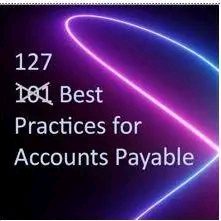How to Audit Accounts Payable for Optimal Financial Management

In the world of finance, maintaining accurate and efficient accounts payable processes is crucial for the success of any organization.
Auditing accounts payable plays a pivotal role in ensuring financial integrity, identifying potential risks, and optimizing cash flow.
In this blog post, we will delve into the essential steps and best practices for conducting a thorough accounts payable audit.
the Importance of Accounts Payable Audits
Auditing accounts payable provides valuable insights into an organization’s financial health.
By conducting regular audits, businesses can identify errors, prevent fraud, improve vendor relationships, and optimize cash flow.
Furthermore, compliance with legal and regulatory requirements is ensured, providing transparency and accountability.
Key Steps for Conducting an Accounts Payable Audit
• Reviewing Documentation
Gather all relevant documents, such as invoices, purchase orders, receipts, and contracts. Analyze them to verify accuracy, completeness, and compliance with internal policies and external regulations.
• Confirming Vendor Information
Ensure that vendor details, such as names, addresses, tax identification numbers, and banking information, are accurate and up to date. This step helps prevent payment errors and potential fraudulent activities.
• Validating Invoice Accuracy
Thoroughly examine invoices to verify that the amounts billed are correct, goods or services were received, and pricing is in line with contractual agreements. Any discrepancies should be resolved and documented.
• Assessing Internal Controls
Evaluate the effectiveness of internal controls governing accounts payable processes. Identify any weaknesses or gaps that could lead to errors, fraud, or noncompliance. Implement necessary measures to mitigate risks.
• Analyzing Payment Records
Review payment records, including check stubs, electronic fund transfers, and credit card statements. Ensure that payments are properly authorized, supported by adequate documentation, and align with approved terms and conditions.
FAQs
How often should accounts payable audits be conducted?
It is recommended to conduct accounts payable audits on a regular basis, at least annually. However, the frequency may vary depending on the size of the organization, industry regulations, and internal risk factors.
What are the benefits of automating accounts payable processes?
Automating accounts payable processes improves efficiency, reduces errors, enhances data accuracy, speeds up payment cycles, and provides better visibility into financial operations. It also streamlines auditing by offering centralized access to documents and transaction records.
How can accounts payable audits help prevent fraud?
Accounts payable audits can detect fraudulent activities by identifying red flags such as duplicate payments, fictitious vendors, altered invoices, or unauthorized changes to payment details. Regular audits create a deterrent effect and promote an ethical work environment.
What role does technology play in accounts payable audits?
Technology, such as data analytics tools and software solutions, can significantly streamline the accounts payable auditing process. It enables automated data extraction, real-time monitoring, fraud detection, and improves overall accuracy and efficiency.





